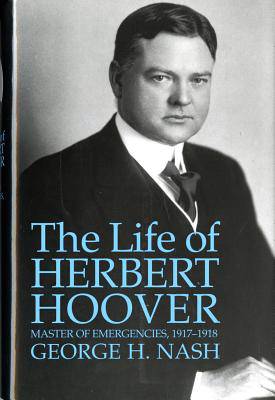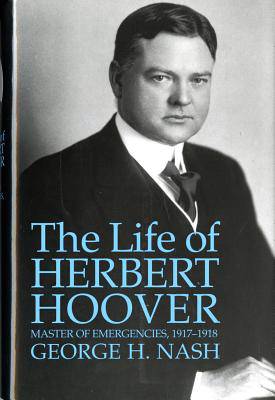
Bedankt voor het vertrouwen het afgelopen jaar! Om jou te bedanken bieden we GRATIS verzending (in België) aan op alles gedurende de hele maand januari.
- Afhalen na 1 uur in een winkel met voorraad
- In januari gratis thuislevering in België
- Ruim aanbod met 7 miljoen producten
Bedankt voor het vertrouwen het afgelopen jaar! Om jou te bedanken bieden we GRATIS verzending (in België) aan op alles gedurende de hele maand januari.
- Afhalen na 1 uur in een winkel met voorraad
- In januari gratis thuislevering in België
- Ruim aanbod met 7 miljoen producten
Zoeken
€ 59,45
+ 118 punten
Uitvoering
Omschrijving
The entry of the United States into the First World War in late 1911 found Herbert Hoover at a crossroads. Three years earlier, he had been a successful mining engineer in London. Then, as the war intensified in Europe, Hoover founded and led the Commission for Relief in Belgium, which provided desperately needed fuel to more than nine million Belgian and French citizens trapped between the German army of occupation and the British naval blockade.
That emergency undertaking eventually evolved into one of the greatest humanitarian enterprises in history. It also brought Hoover into international prominence.Here Herbert Hoover moves toward Washington and center stage in his own country. Shortly after the United States's declaration of war, he entered into able service under Woodrow Wilson as a member of the President's War Cabinet and U.S. Food Administration. His goal was to standardize food production to control surging food prices, and to create surpluses of exportable foodstuffs for America's allies. "Food will win the war" became Hoover's slogan.
That emergency undertaking eventually evolved into one of the greatest humanitarian enterprises in history. It also brought Hoover into international prominence.Here Herbert Hoover moves toward Washington and center stage in his own country. Shortly after the United States's declaration of war, he entered into able service under Woodrow Wilson as a member of the President's War Cabinet and U.S. Food Administration. His goal was to standardize food production to control surging food prices, and to create surpluses of exportable foodstuffs for America's allies. "Food will win the war" became Hoover's slogan.
Specificaties
Betrokkenen
- Auteur(s):
- Uitgeverij:
Inhoud
- Aantal bladzijden:
- 672
- Taal:
- Engels
Eigenschappen
- Productcode (EAN):
- 9780393345957
- Verschijningsdatum:
- 1/09/1996
- Uitvoering:
- Paperback
- Formaat:
- Trade paperback (VS)
- Afmetingen:
- 156 mm x 234 mm
- Gewicht:
- 925 g

Alleen bij Standaard Boekhandel
+ 118 punten op je klantenkaart van Standaard Boekhandel
Beoordelingen
We publiceren alleen reviews die voldoen aan de voorwaarden voor reviews. Bekijk onze voorwaarden voor reviews.









